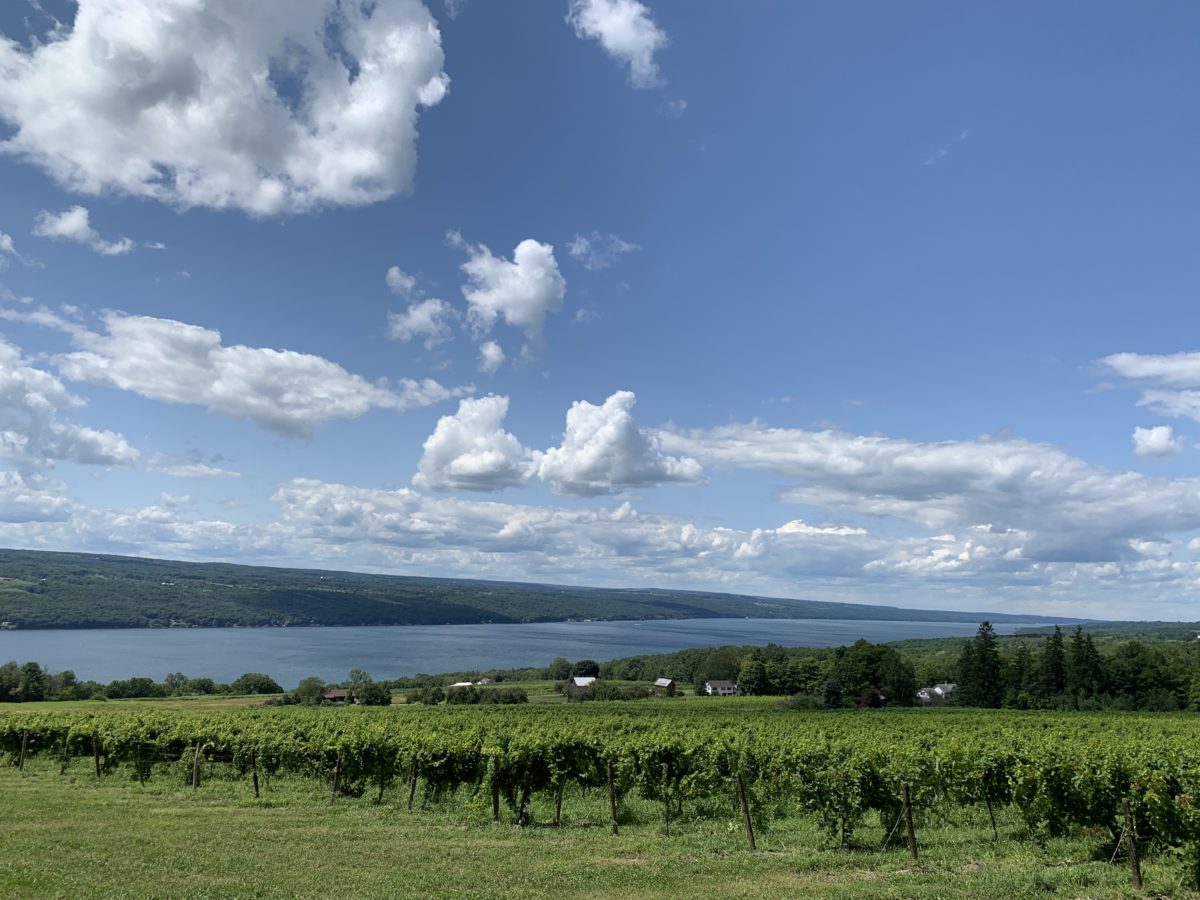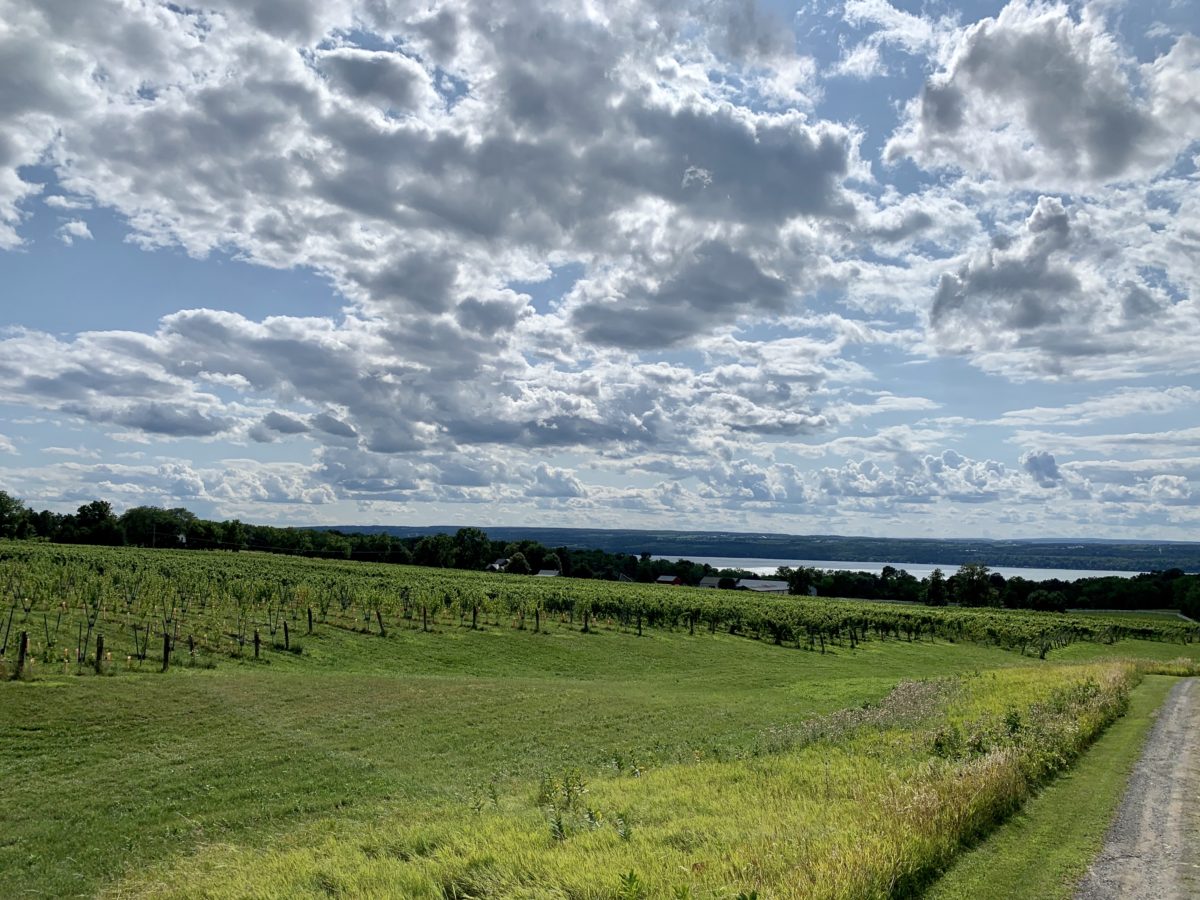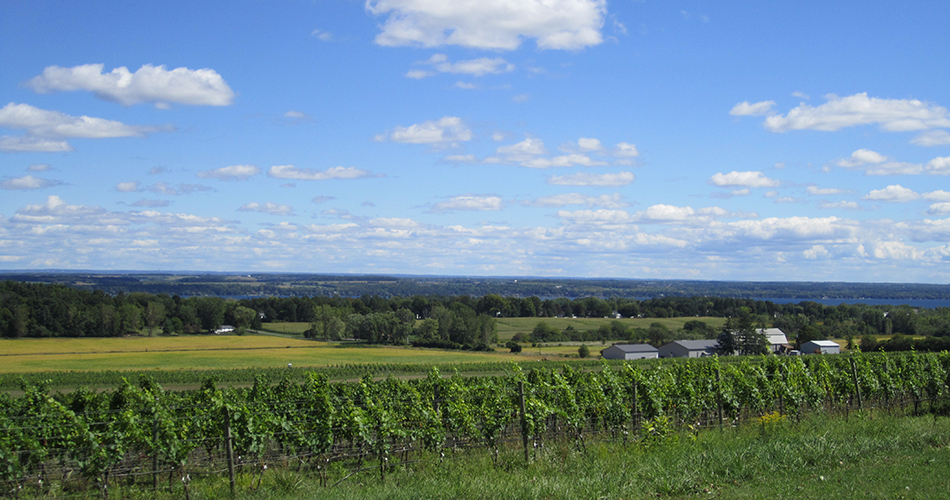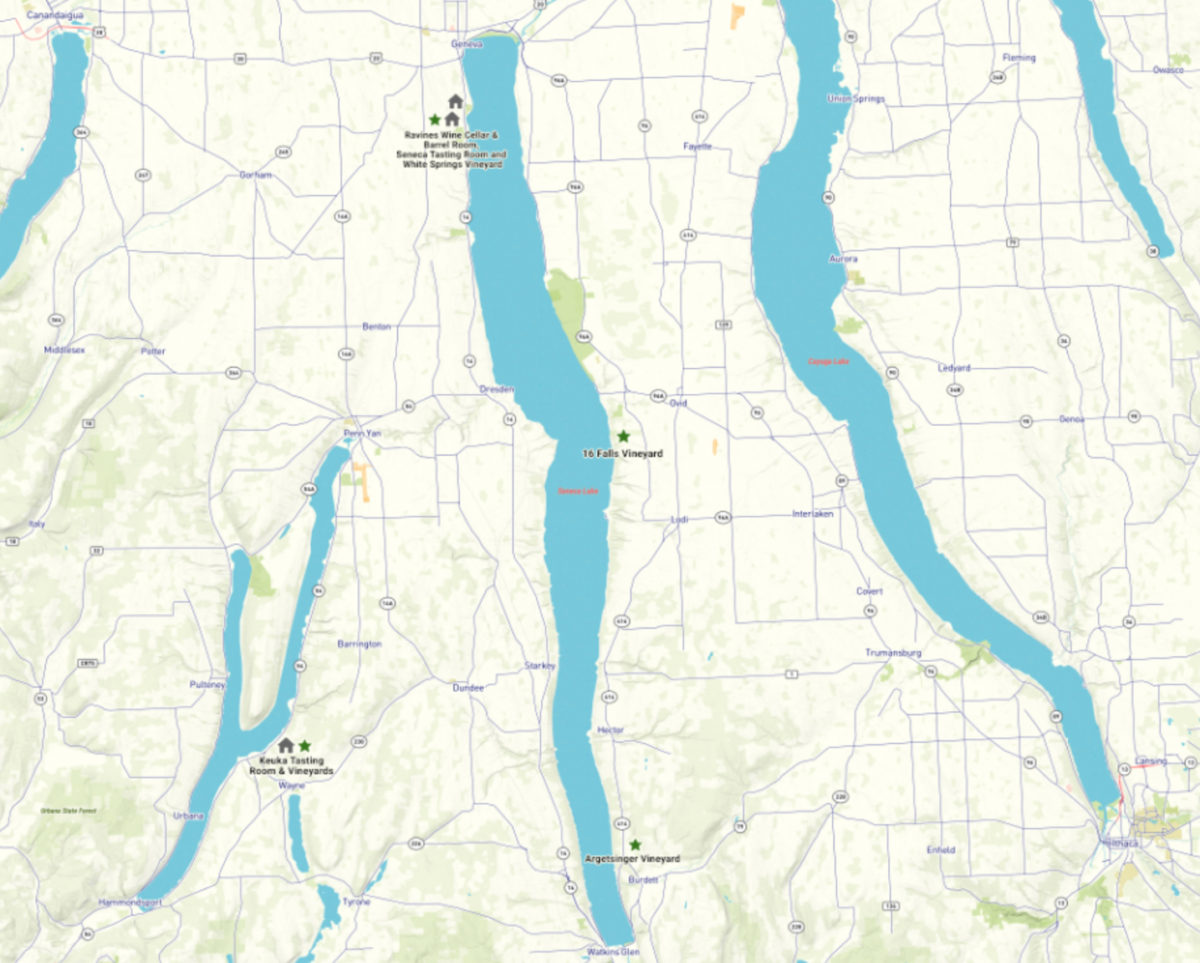Unprecedented Vineyard Sites
130 Acres of Estate Vineyards in Prime Proximity to Seneca and Keuka Lakes

Our vineyards are sustainably farmed on limestone and shalestone soils that have excellent slope and drainage. Every day our dedicated team of vineyard managers strive to bring out the full potential of each site.
Working in and making wines from the same vineyards, year after year since 2002, we were fortunate enough to “cherry pick” our favorites and re-plant or continually farm the best suited varietals. Thanks to this, Morten and the Ravines team have been able to gain an intricate understanding of terroir and vineyard characteristics, allowing each site and varietal to achieve its maximum potential.

Argetsinger Vineyard
A steep-sloped vineyard on the southeastern shores of Seneca Lake, owned by Beren Argetsinger. The shallow, mineral rich limestone soil of this vineyard gives the grapes a leaner fruit profile, with more floral characteristics and focused minerality. Ravines Sparkling wines, Le Petit Caporal (Cabernet Sauvignon, Merlot & Cabernet Franc), Dry Riesling, Argetsinger Vineyard and Dry Pinot Rose comes exclusively from this site. In many vintages, we release a single vineyard Chardonnay and Pinot Noir and in occasional vintages a single vineyard Merlot as well.

16 Falls Vineyard
Located on the East side of the deepest section of Seneca Lake, in the town of Ovid, this estate vineyard consists of acidic shalestone with significant clay content. The 46 acre vineyard is almost entirely installed with a lyre trellis system. This system, invented by Alain Carbonneau (Morten’s Viticulture Professor in Montpellier, France) significantly increases the amount of sunshine captured by the vines by having a larger foliar surface area. This, in turn, results in greater ripeness.

White Springs Vineyard
This is the location of Ravines main tasting room, cellar and winery operation. The estate vineyard soil composition is Honeoye loam over limestone. The vineyard is located in the northern part of the Finger Lakes region and was one of the first farming sites in Western NY to have a sophisticated irrigation system installed over 150 years ago. With many older vine-plantings, significant slope and perfect eastern exposure, this large 59 acre vineyard site produces ripe, pristine grapes with nuances and complexity.

Ravines Sustainability Statement:
Sustainability has continually increased in importance and makes us long for a certified program! About 12 years ago, Cornell University and its co-op extension launched a program called “Vine Balance” in cooperation with local vineyards. They set out to define the best local sustainable practices for the Finger Lakes and created “a handbook” outlining these practices. After the recession of 2008–2010, the program was unfortunately “shelved” due to lack of funding*. We therefore don’t have a certified program, but we do have an outline for best practices. Since 2012, when we took over the White Springs vineyard in Geneva, and especially since 2018, when our vineyard manager retired and new vineyard managers were hired for both the White Springs vineyard and the 16 Falls vineyard, we have made substantial changes in our vineyard operations. I will categorize our practices as sustainable practices, and these include:
• no use of herbicides,
• no use of insecticides or other restricted materials,
• improved soil management with erosion control (cover crops), and
• limited use of organic nutrients only; putting back only what the vines remove.
Our vineyard practices remain non-dogmatic, reflecting the fact that we work in a wine region with humid summers and substantial disease pressure. We consider our primary responsibility to be the production of sound grapes that reflect their vineyard origins while maintaining good land stewardship practices, meaning no long-term accumulation of compounds in our soil or water. To me, that’s the “sustainable” part. Our practices of leaf removal and cluster thinning lowers the disease pressure, but we will still, occasionally, need to use a pesticide that prevents us from making “organic” claims.
*Update in 2022: Ravines is one of the 2022 Pilot members of Cornell’s re-established Sustainable Winegrowing Certification Program for New York State! We are thrilled that NY State has re-instituted, with new standards the “Vinebalance 2022” program.
More Information about this program can be found here
